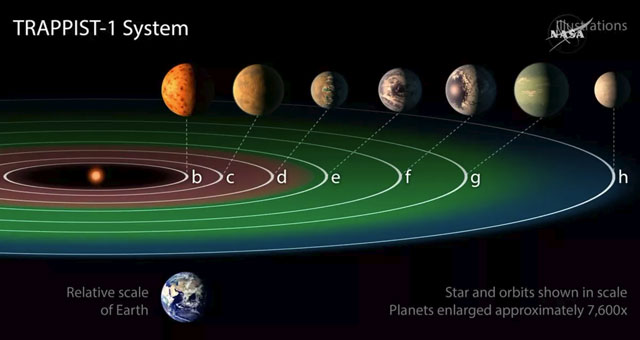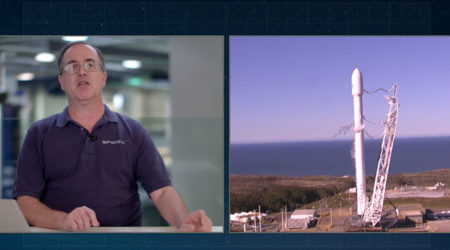Elon Musk’s SpaceX flew a reused rocket to space and back again, a key milestone to reducing launch costs and one day enabling people to live on other planets. A SpaceX Falcon 9 rocket rumbled aloft, deposited a customer’s
Browsing: Nasa
If the rocket Elon Musk’s SpaceX expects to launch next week looks familiar, that’s because it is. The Falcon 9 rocket slated to take off from Kennedy Space Centre in Cape Canaveral, Florida
If all goes as planned, two tourists will crawl into a space capsule at the end of next year and blast off for a week-long trip to the moon and back. It’s the ultimate couple’s vacation, offered exclusively by
Elon Musk’s SpaceX plans to send two private citizens on a trip around the moon late next year as it continues to work with Nasa for a planned crewed mission to the International Space Station. The passengers
When astronomers eyeball little stars twinkling through their telescopes, they now know for certain that circling around some of them are worlds not unlike our own. On Wednesday, an international research team using
Elon Musk’s SpaceX successfully launched its second rocket in as many months on Sunday, bringing it a 10th of the way to its goal of deploying 20 to 24 rockets this year. The Falcon 9 rocket that launched SpaceX’s Dragon spacecraft
In 2010, an advanced aircraft engineer at Nasa’s Langley Research Centre named Mark Moore published a white paper outlining the feasibility of electric aircraft that could take off and land like helicopters but were smaller and quieter. The
Elon Musk’s Space Exploration Technologies, better known as SpaceX, returned to the skies on Saturday with a flawless delivery of communications satellites into orbit, its first flight since a 1 September fireball destroyed a rocket
Entrepreneur Elon Musk laid out a vision of travel to Mars that was heavy on both technology – the how of getting there – and on the dangers that await those first explorers just a decade from now. “The first journey will be very
When Elon Musk takes the stage of the 67th International Astronautical Congress in Guadalajara, Mexico on 27 September, it won’t be to rehash terrestrial concerns like a fatal Tesla autopilot crash or a poorly received merger proposal. Instead







